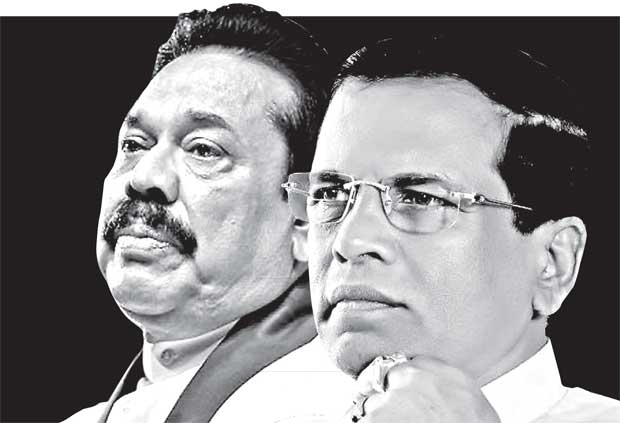Reply To:
Name - Reply Comment
Last Updated : 2024-04-26 02:12:00
 ow that the Sri Lanka Freedom Party (SLFP) has decided to grant nomination to ex-President Mahinda Rajapaksa to contest the forthcoming general elections, a sense of gloom has dawned on certain quarters of the public who genuinely loath the long-term effects of the ex-President’s political comeback. Such sentiments are quite understandable. A sizable portion of the total 6.2 million people who voted against the authoritarian ex-President now fear that he would roll back democratic reforms that were introduced by the new administration. Even if he fails to reverse democratic reforms which have already been implemented, chances are that, should he ever win and be appointed
ow that the Sri Lanka Freedom Party (SLFP) has decided to grant nomination to ex-President Mahinda Rajapaksa to contest the forthcoming general elections, a sense of gloom has dawned on certain quarters of the public who genuinely loath the long-term effects of the ex-President’s political comeback. Such sentiments are quite understandable. A sizable portion of the total 6.2 million people who voted against the authoritarian ex-President now fear that he would roll back democratic reforms that were introduced by the new administration. Even if he fails to reverse democratic reforms which have already been implemented, chances are that, should he ever win and be appointed  the Prime Minister, he would stall any new measures aimed at democratization. That would mean, among other things; the much awaited Right to Information Act risks becoming a non-starter; the UNP, for the second time, has killed the initiative through its procrastination. During the short-lived Ranil Wickremesinghe administration of 2003-2004, the Bill had been entered into the order paper when President Kumaratunga dissolved the then Parliament.
the Prime Minister, he would stall any new measures aimed at democratization. That would mean, among other things; the much awaited Right to Information Act risks becoming a non-starter; the UNP, for the second time, has killed the initiative through its procrastination. During the short-lived Ranil Wickremesinghe administration of 2003-2004, the Bill had been entered into the order paper when President Kumaratunga dissolved the then Parliament.

Add comment
Comments will be edited (grammar, spelling and slang) and authorized at the discretion of Daily Mirror online. The website also has the right not to publish selected comments.
Reply To:
Name - Reply Comment
US authorities are currently reviewing the manifest of every cargo aboard MV
On March 26, a couple arriving from Thailand was arrested with 88 live animal
According to villagers from Naula-Moragolla out of 105 families 80 can afford
Is the situation in Sri Lanka so grim that locals harbour hope that they coul